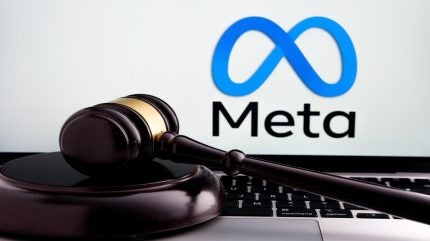
Meta Platforms and TikTok have initiated legal proceedings against the European Commission (EU), contesting a supervisory fee imposed under the Digital Services Act (DSA).
The companies argue that the fee, which is set at 0.05% of their annual global net income, is disproportionate and based on an inaccurate calculation method, reported Reuters.

Discover B2B Marketing That Performs
Combine business intelligence and editorial excellence to reach engaged professionals across 36 leading media platforms.
This fee is intended to cover the costs associated with the EU’s oversight of compliance with the DSA, which was enacted in 2022.
The fee’s calculation takes into account the average monthly active users of each company and their financial performance in the previous year.
During the proceedings at the General Court, Meta’s legal representative, Assimakis Komninos, stated that the company is not attempting to evade its financial responsibilities but is questioning the methodology used to determine the fee.
He highlighted that the calculation was based on the group’s revenue rather than that of the subsidiary, leading to a lack of clarity regarding the fee’s determination.

US Tariffs are shifting - will you react or anticipate?
Don’t let policy changes catch you off guard. Stay proactive with real-time data and expert analysis.
By GlobalDataKomninos was quoted by the news publication as saying: “The provisions in the Digital Services Act, or DSA go against the letter and the spirit of the law, are totally untransparent with black boxes and have led to completely implausible and absurd results.”
TikTok, owned by ByteDance, echoed similar concerns regarding the fee’s fairness.
To the court, TikTok’s lawyer Bill Batchelor said: “What has happened here is anything but fair or proportionate. The fee has used inaccurate figures and discriminatory methods.”
Batchelor further asserted that the EU’s approach involved double counting users, as individuals switching between devices could be counted more than once, which he deemed discriminatory.
He also contended that the fee cap was set unlawfully based on group profits.
In response, Lorna Armati, representing the Commission, defended the fee calculation method.
In a statement, Armati said: “When a group has consolidated accounts, it is the financial resources of the group as a whole that are available to that provider in order to bear the burden of the fee.
“The providers had sufficient information to understand why and how the Commission used the numbers that it did and there is no question of any breach of their right to be heard now, unequal treatment.”
The General Court is expected to deliver its ruling on the matter in the coming year.
Recently, Meta Platforms reportedly agreed to acquire a 49% stake in US-based AI startup Scale AI for $14.8bn.





